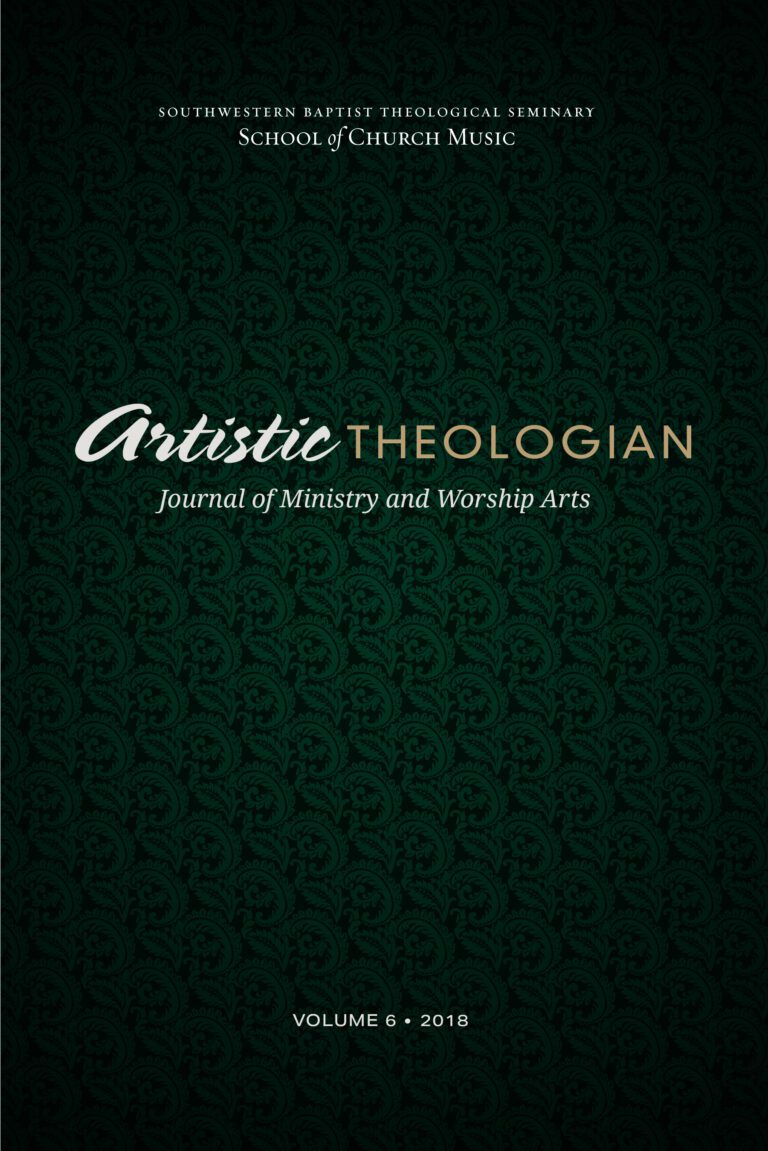
When We Come Together
Artistic Theologian
Volume 6, Summer 2018
Editor-in-Chief: Scott Aniol
Drinking from the Wells of New Creation: The Holy Spirit and the Imagination in Reconciliation, by Kerry Dearborn. Eugene, OR: Cascade Books, 2014. 159 pp. $20.70.
“What went so wrong with Christian creativity, hope, and love that such inhumane treatment of others could be justified” (66)? Kerry Dearborn, Professor of Theology at Seattle Pacific Seminary and Seattle Pacific University, addresses this question in her book titled Drinking from the Wells of New Creation: The Holy Spirit and the Imagination in Reconciliation. Her purpose is to pen a book that the Holy Spirit uses to bring renewal and hope while leading to shalom (8). Dearborn’s thesis is “that the Holy Spirit is the source of power to reimagine life and to live for the common good, without whom God’s people can quickly default to systems of fearfulness and greed” (33).
Dearborn first explains that God is the one who reconciles, and then she examines the Holy Spirit’s attributes and role in reconciliation. Gifts of the Spirit in reconciliation follow. Next, Dearborn elucidates how the Holy Spirit shapes the imagination in reconciliation, and she explains the imagination’s shadows that inhibit reconciliation. Dearborn closes by describing some signposts of the Holy Spirit’s creation of reconciliation: ekklesia, koinonia, and sacramentum.
Dearborn supports her thesis by exploring the importance of the Holy Spirit forming imaginations in reconciliation. She argues that “the imagination is a vital means by which the Holy Spirit’s gifts of faith, hope, and love can bear fruit that tastes of the indwelling life of Jesus Christ” (70). She traces the Holy Spirit’s work on imaginations found in the story of Peter and Cornelius (Acts 10) and further explains that the imagination is “a solvent that fosters healthy self-denial” that the Spirit uses in forming a person to live for the common good of others (75). Dearborn states, “prayerful openness is one of the most crucial means by which one can receive God’s transforming power to reshape one’s imagination for participation in God’s reconciling purposes” (71). She writes that Peter’s imagination was changed from the “Jewish identity” that believed Gentiles and their food were unclean to an imagination that embraced Cornelius and his family as “coheirs with Christ” (72–73). Dearborn explains it is the Holy Spirit that changes a person’s imagination from self-centeredness to compassion and love for others (73). Not only is the imagination the solvent that the Spirit works upon, Dearborn argues the Spirit creates a new vision in the imagination. The Spirit forged a new hope and vision in Peter and Cornelius that was “countercultural” (78). Thirdly, an imagination impacted by the Spirit will catalyze a response in the community. The Spirit shaped Peter’s imagination to see Christ as Lord and Judge of everyone (79). Dearborn lucidly points to her thesis when she states that “dividing walls have been brought down, and that reconciliation and unity are the gift of God in Christ and by the Holy Spirit” (80). The Spirit’s role in molding the imagination is essential to Dearborn’s claim.
Dearborn also attempts to defend her thesis by elucidating the signposts of the Holy Spirit’s work in reconciliation. She argues the Spirit transforms and creates signposts “that point to renewed life rather than crushing oppression and death” (119). Ekklesia, koinonia, and sacramentum are three signposts. Ekklesia, according to Dearborn, became “a radical expression of inclusion,” and the Spirit’s creation of ekklesia produces Christian loyalty (120). Instead of being exclusive, the Church’s koinonia, through the Spirit’s renewing, radically includes “Jew and Gentile, male and female, slave and free” (121). Radical inclusiveness is also seen in the early church’s understanding of sacramentum. Dearborn states that this community allowed the Spirit to form their imaginations to see themselves as one body, not divided by class, gender, or ethnicity (122). Dearborn states that these signposts express the Holy Spirit’s impact in reimagining the essence of life (123).
Dearborn makes many thought-provoking claims in her book. She clearly argues for the Spirit’s role in reconciliation among different ethnicities and social classes. In a world plagued with division and hatred, this book encourages Christians to stand against discrimination. Dearborn’s argument for the Spirit’s working on the imagination is particularly strong, and it befits the reader to ponder her elucidation of the imagination’s shadows, a “reservoir of gruesome and hideous images” (6). Overall, Dearborn successfully argues her thesis.
Though value can be found in this book, it behooves Dearborn to clearly state her understanding of the gospel. At times, she seems to use language that points to universalism and the social gospel. For example, she states that “it is precisely because reconciliation is first and foremost the work of God and only secondarily something in which humans participate, that its universal inclusiveness is ensured” (27), and later she notes that “the Spirit gives life to all people, and is a defender of the weak and powerless” (52). She also states that “all have been qualified by Christ and in Christ” (121). In relation to gender roles, complementarians will find Dearborn’s book to be problematic (127). Dearborn also needs to better clarify how creation is a moment of salvation (12).
I would hesitantly recommend this book to students of theology and sociology. This book is written at a college reading level, and it is a fair addition to the field of pneumatology.
John Gray
Southwestern Baptist Theological Seminary





